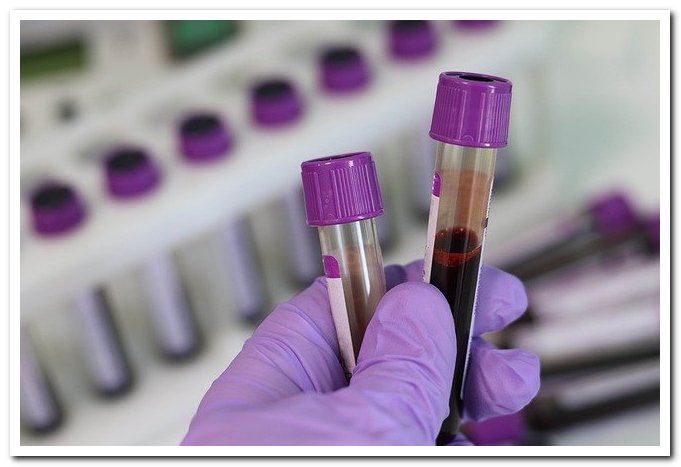-

Certified Dietary Manager (CDM)
WesleyLifeBettendorf, IABettendorf, IA- Full Time
-

Pharmacy Technician, Insitutional
SSM HealthRipon, WIRipon, WI- Full Time
-

Pharmacy Technician – Medication reconciliation
UCLA HealthLos Angeles, CALos Angeles, CA- Full Time
-

Pharmacy Technician
RWJBarnabas HealthNew Brunswick, NJNew Brunswick, NJ- Full Time
-

Pharmacy Technician
VG'SGenesee, MIGenesee, MI- Part Time
Clinical Laboratory Technician Jobs

Does the idea of becoming an essential worker appeal to you? Do you think of the laboratory as the perfect workplace? If so, one of the many varieties of clinical laboratory technician jobs may be the right professional choice for you.
If you want to understand and measure the human body and earn a stable and decent income in the process, keep reading. You will find condensed info on opportunities, prospects, duties, payment, and other essential aspects of this career path.
Clinical Laboratory Technician Jobs
What Do Clinical Laboratory Technicians Do?
The tasks and duties involved with this job position are so many that even the shortest clinical lab technician job description would be a bit wordy.
In essence, clinical lab technicians deal with specimens of human origin (body fluids and tissues). They collect and prepare them for analysis, perform the analysis with biomedical instrumentation, and log and analyze the results.
Now let’s take a look at some of the duties of these healthcare professionals.
Clinical Laboratory Technician Duties
The typical daily tasks and duties of a clinical lab technician—also referred to as a medical laboratory technician (MLT)—include the following:
- Collecting and preparing biological specimens for analysis (tissues, blood, urine, etc.)
- Operating specialized and computerized laboratory equipment to perform analyses
- Monitoring and aiding the automatized processes of testing
- Microscopy analysis
- Logging result data in medical files and discussing it with a physician
- Performing confirmation tests where necessary
- Maintenance of lab equipment
Types
Laboratory technician jobs include many specific tasks that depend on the specialization level of the professional. Namely, there are several clinical areas in which a medical lab technician can specialize in:
- Biochemistry
- Hematology
- Microbiology
- Pathology
- Chemistry
- Cytology
- Blood banking
- Reproductive health
- Immunology
- Molecular diagnostics
There are many other options for the specialization of any medical laboratory technician and jobs that include different specimens and analysis processes.
Work Environment
In 2019, almost half of the clinical lab technicians (47%) worked in US hospitals. The data collected by the Bureau of Labor Statistics (BLS) also shows that 20% of clinical lab techs were employed in a medical diagnostic laboratory.
On the other hand, outpatient care centers were the workplace for only 3% of the MLTs. Clinical laboratory technicians working in schools, universities, colleges, and other educational institutions are also sparse. Just 6% of the clinical lab technicians work there.
As an MLT, you can also apply to work in a physician’s office where 9% of clinical lab techs work or governmental agencies and institutions. What’s more, other non-medical laboratories in different industries can employ clinical lab technicians after their specialization.
That being said, you can also apply for the traveling medical laboratory technician jobs. These professionals work for multiple healthcare or other institutions on-demand or according to a specific working schedule.
Injuries and Illnesses
Clinical laboratory technician jobs involve working with infectious materials and harmful chemical substances daily. So the handling of samples for analysis and the materials used in these tests should be done with extreme care.
Besides practicing caution, lab technicians should strictly follow general and specific guidelines and protocols for work safety in their laboratories. These security measures are found in any clinical laboratory technician job description.
Due to the potentially hazardous materials in analytes, lab tech personnel have to wear PPE. This includes wearing protective garments like a lab coat, masks, goggles, and gloves.
Moreover, for clinical laboratory technicians, the regular sanitization of the lab equipment and working surfaces is imperative. Practically, the safety of the job environment relies upon regular disinfection.
In addition to the risk of infection, medical and clinical laboratory technicians work long hours on their feet, which can also induce health complications. Also, they are exposed to physical injuries from repetitive motion.
Also, the collection of samples or the maintenance of lab equipment can include lifting heavy objects, which increases the risk of injury.
Work Schedules
As most lab technician jobs are performed in hospitals, lab techs mostly work in shifts, during weekends, or on holidays. This is also the case for those working in governmental institutions and physician’s offices.
Medical diagnostic centres and educational institutions offer a more regular working schedule, which rarely includes overnight shifts.
Most clinical laboratory technicians have jobs that are full-time contracts.
How to Become a Clinical Laboratory Technician
When working in a laboratory, you may not require the intrapersonal skills needed for regular contact with patients. However, clinical laboratory technician requirements include another set of skills that are mostly technical.
Important Qualities
- Manual dexterity—Having good eye-hand coordination and precision when working with instruments and samples elevates the quality of work and prevents wasting reagents and time.
- Physical strength—This one is especially important for entry-level laboratory technician jobs where lab techs can be charged with collecting samples from patients.
- Technological literacy—One of the primary clinical laboratory technician requirements is their ability to use technology for performing analysis.
- Digital competence—Automatized analyzers used in clinical labs are more often than not connected to a computer and run through specialized software. Clinical laboratory technicians need to be able to work with the specific software of the lab apparatus.
- Detail-orientation—The evaluation of samples and the monitoring of machinery work requires a detail-oriented eye. Furthermore, lab technicians need to spot issues with the testing process as soon as possible.
- Problem-solving—Being able to analyze and solve any problems during testing is another critical skill when working in a lab setting.
Education
The way to obtain a clinical laboratory technician job usually starts with completing a 2-year associate’s degree program in laboratory sciences.
Sound theoretical and practical knowledge in biology, chemistry, and math is the groundwork for this program because it includes major laboratory-related disciplines like biochemistry and histology.
Aside from an associate’s degree, some vocational and technical schools offer other options for obtaining medical laboratory technician certification. Programs for clinical lab techs can also be found in other institutions, including the US Armed Forces.
However, the best-reputed programs are accredited by the National Accrediting Agency for Clinical Laboratory Sciences (NAACLS).
Licenses, Certifications, and Registrations
In some states, clinical lab technicians are required to obtain a license to work, for which they qualify by completing the minimum educational level.
However, the state-regulations are not the only good motivation for a lab technician to get certified. Another good stimulus is the medical or clinical laboratory technician salary, which is higher for those with certification.
That being said, clinical lab technicians can pursue either general or specialized certification (in cytotechnology, molecular biology, etc.).
Advancement
The HR statistics show that 22% of employees quit their work due to the impossibility of career growth, so having a chance for career advancement is an essential aspect of any job.
Generally, a laboratory technician has career opportunities in many medical fields, but specialization in one or more medical domains brings better chances for a higher-paying job position.
MLTs can obtain their specialization and work in specialized laboratories by the means of additional education, work experience, or certification.
Medical (or clinical) laboratory technicians can also continue their education to obtain a medical laboratory scientist degree (BSc) and become medical laboratory scientists (MLS), also known as clinical laboratory technologists (CLT).
For a clinical laboratory technician, any career opportunities in a specific field grow when they pass the BSc program for clinical laboratory technologists.
What’s more, some colleges and universities do not require repeating the subjects that the MLS and the MLT programs have in common. So lab technicians can obtain BSC degrees for a shorter period and become medical lab technologists.
Pay
There were 337,800 medical laboratory technologists and technicians in 2019, according to the BLS data. And the annual medical lab technician jobs salary of $53,120 was well above the annual wages for all US occupations for the same year ($39,810).
The average rate per hour for medical laboratory technicians is $17.32. Wages in this field depend on the number and types of certifications obtained by the workers, their educational level, workplace, and working experience.
According to information including the latest clinical laboratory technician jobs, the median annual earnings for experienced medical lab technicians are $54,161 (August 2020) and $44,439 for those with short working experience.
The lowest overall annual wage for this job position in 2019 was $30,920, following BLS data. On the higher end, the top-earning 10% of clinical technicians gained $81,530.
As for the ranges, the annual pay for senior clinical lab technicians is between $48,598–$59,219, while the entry-level laboratory technician jobs offer between $39,959–$49,662 per year.
The MLTs working in hospitals are usually the highest-paid personnel, with a median salary of $55,780 on an annual level. Next are the medical lab techs working in outpatient care centers, followed by those working in diagnostic centers.
Moreover, those working in the laboratories of educational institutions earn the lowest median clinical laboratory technician salary of $47,990.
Job Outlook
Aspiring clinical lab technicians can let out a sigh of relief because employment for this job profile will grow in the next decade by approximately 7% each year.
Even though getting a job with no experience can be challenging, the effort invested in qualifying for lab technician jobs is well worth the time because the new jobs’ growth rate is significantly higher than the overall rate for all occupations (4%).
Indeed, given the increasing demand for diagnosis, and the rapid aging of the US population, the number of new job vacancies is expected to grow and reach 362,500 by 2029.
Job Prospects
Employment possibilities are higher for certified clinical technicians, and those having more than one certificate enjoy even greater employability rates. In any case, this career choice leads to many job opportunities everywhere across the US.
And all those asking themselves: “Are there any clinical laboratory technician jobs near me?” can find the answer here.
FAQ
What is the salary of a clinical laboratory technician?
The annual salary bracket for a clinical laboratory technician, according to BLS data from 2019, is between $30,920–$81,530. The median clinical laboratory technician salary is about $53,120 per year, and the hourly rate is around $17.32.
Based on their median wages, laboratory technicians earn $13,310 more than the overall median yearly salary and some $8,740 over the median annual salary of health technologists and technicians.
What is a medical and clinical laboratory technician?
Clinical and medical laboratory technicians are laboratory personnel charged with collecting, preparing, and testing specimens of human origin, like tissue, blood, and urine, following the orders of surgeons or physicians.
Medical lab techs are the ones that perform most of the routine tests and analyses using automatized lab equipment. Clinical laboratory technologists overlook the work of clinical lab technicians and complete the more complex analysis.
How do I become a clinical laboratory technician?
You need to have an associate’s degree in laboratory science or a similar postsecondary certificate to become a clinical lab technician. Additionally, some states require lab technicians to obtain a license to practice on their territory.
Although this qualification is not always necessary, candidates that have obtained their medical laboratory technician certification are usually the favored candidates in a job interview.
You also need to have talent, problem-solving and organizational skills, and, above all, the ability to work with laboratory apparatus used in clinical testing.
What do clinical lab techs do?
The clinical lab technician job description involves performing many tasks simultaneously, from collecting samples for analysis to operating lab equipment and recording results.
How specialized or diversified your duties will depend on the laboratory that you will be working in. In any case, you should expect to operate and monitor the performance of sophisticated laboratory equipment daily (blood analyzers, microscopes, cell counters, etc.)
Moreover, laboratory technician jobs are inevitably linked to manipulating and analyzing samples of bodily fluids and tissues. Still, the exact nature of the specimens you’ll be dealing with depends on your employer’s facility.
And finally, logging, checking, and discussing test results are also on the laboratory technician’s assignments list.
Is a medical lab tech a good career?
Unlike the bachelor, master, or higher degrees needed for other medical laboratory professions, only a 2-year associate’s degree program stands in your way of becoming a clinical lab technician.
So you can quickly become a part of the most prosperous sector of American society—healthcare—and secure a well-off future given that new clinical laboratory technician jobs are expected to grow in the next 10 years.
What’s more, with this job position, you will have the possibility to specialize in certain medical areas and advance in your career.
On the flip side, you need to know that the lab technician jobs mean working with infectious samples and other dangerous materials, so you will need to follow safety precautions and procedures to the letter.
Suppose you are looking for a career in Health Care that doesn’t require lengthy studies and one that will provide you with above-average earnings. In that case, a clinical laboratory technician is an excellent career choice.
Conclusion
Becoming a medical laboratory technician means joining the healthcare sector at its foundation, becoming an essential part of the medical system.
This is easily obtainable, since having the multi-tasking, organizational, and technological skills needed for this job can be obtained through proper training.
As a medical lab technician, you will be helping people in their quest for health—a role that is as morally satisfying, especially given the recent global developments.
So the choice is all yours of whether or not you will take part in the growing number of clinical laboratory technician jobs, and we hope we made it easier by showing you what you can expect.